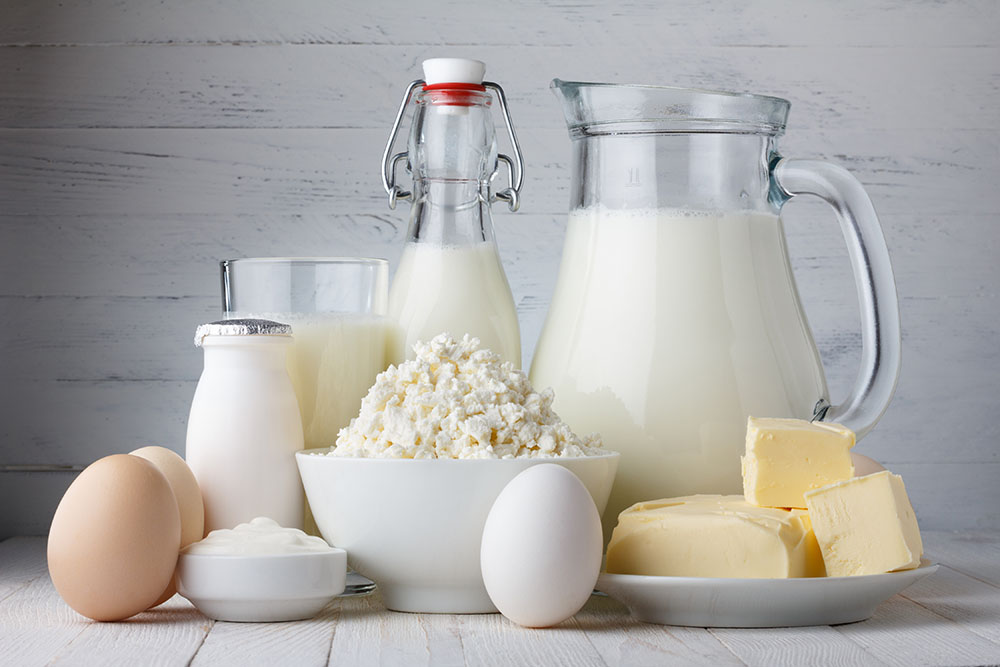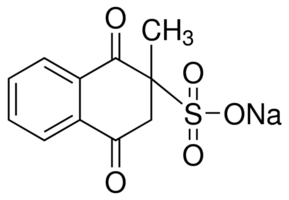What is Nisin E234?
Nisin E234 is a polycyclic antibacterial peptide produced by streptococcus lactis.
Nisin, also known as Streptococcus lactic (strep lactis) peptide, is a natural biological activity of antimicrobial peptides used as a natural food preservative E234.
It is a natural preservative E234 and has a strong inhibitory effect on many gram-positive bacteria, including spoilage and pathogens.
Nisin bacteriocin is the only one bacteriocin that used as E324 food additive.
Nisin E234 structure
Nisin Chemical formula C143H230N42O37S7, The structure has 34 amino acid, including five uncommon amino acids: ABA, DHA, DHB, ALA-S-ALA and ALA-S-ABA.

Nisin molecular weight: 3,354.07 g/mol
Nisin E234 Properties
Features:
1)Strong inhibiting activities. Nisin E234 specifically targets the stubborn Bacillus spp. and their spores.
2)High safety. Nisin E234 can be quickly digested into amino acids with the aid of enzymes in human stomach.
3)Good stability. Nisin E234 is stable in acid conditions and can keep active even at 121℃ for 30mins.
4)Easy water soluble.
5)No flavor influence.
Nisin solubility
Nisin E234 is a solid powder that is soluble in water or in liquids and has different solubility at different pH values. As in general water (pH = 7) Nisin solubility is 49 mg Nisin / ml; if in 0.02 M HCl the solubility is increased to 118 mg Nisin / ml.
Nisin Biosynthesis
Nisin, E234, also known as Streptococcus lactic peptide, is a kind of polypeptide compound extracted from the fermentation product of streptococcus lactis. Nisin is a natural antimicrobial agent used as a natural preservative in heat processed and low pH foods. According to the Food Chemical News Guide (a reference guide to the uses of foods additives permitted under Federal Law), Nisin preparation is a concentrate of dry material derived from the controlled fermentation of a naturally occurring milk bacteria Streptococcus lactis. This bacterium contains Nisin, a group of related peptides (partial amino acid chains that make up proteins) with antibiotic activity. The chemical Nisin cannot be synthesized artificially, so the Nisin-producing bacteria are basically farmed for their synthesis of Nisin.
Nisin manufacturing process begins by fermenting the milk bacteria. The resulting Nisin is concentrated, separated, and dried before milling into fine particles and standardized by the addition of sodium chloride (salt). The resulting typical composition is nisin (2.5%), sodium chloride (greater than 50%) ,protein (23.8%), and moisture (less than 3%).
Nisin mode of action
Numerous studies on the mode of action of sensitive vegetative cells and spores have been studied in large part on the role of vegetative cells in the plasma membrane and Nisin E234 has the damaging effect of exuding the most important cytoplasm, such as adenosine triphosphate. More importantly, cytolysis is caused, and careful studies on the way in which protoplasm acts show that the matrix in the cytoplasm becomes inactive due to the destruction of Nisin E234.
Nisin E234 acts against spores of bacteria rather than resting spores, so it is believed that Nisin E234, unlike other preservatives, inhibits sprouting prior to the expansion of the spores, with examples illustrating that heat-killed of the spores are more sensitive to Nisin, which is why Nisin E234 provides a good preservative effect in hot processed canned foods and saves a lot of energy.
What is Nisin preparation?
Nisin preparation consists of nisin and sodium chloride with an activity of not less than 900 units per mg. The activity of pure Nisin is about 40 × 1000000IU / g (effective concentration in general food is 25 ~ 500IU / g). The Nisin product is a complex of Nisin and sodium chloride and other ingredients, the activity of 1 × 1000000IU / g. Nisin preparation is safe and gluten free.
Nisin Benefits
Nisin E234 is effective in killing or inhibiting Gram-positive bacteria that cause food spoilage such as Lactobacilli, Botox, Staphylococcus, Listeria, Thermotolerant bacteria, Corynebacterium, Pediococcus, Leuconostoc, Branches Bacillus and so on. Especially for spore-forming bacteria such as Bacillus, Clostridium, Bacillus thermophilus, Bacillus thuringiensis, Bacillus spores and other strong inhibition. Under certain conditions, such as the more acidic conditions, YP-1000 Nisin can also kill Gram-negative bacteria and other bacteria.
In general, spore-forming bacteria are very heat-resistant, such as transient sterilization at 135 ° C for 2 seconds at a temperature of 100 ° C, non-spore bacteria of 100%, spore germs of 90%, and 10% Bacillus bacteria can not kill. Bacillus, Clostridium spores germination and reproduction can be completely inhibited by adding 2-4 ppm Nisin or 0.5-80 ppm Nisin.
What foods contain Nisin E234?
Nisin Application and use
Application & Use in dairy products
Dairy products is Nutritious, but microorganisms pollution in the dairy processing and storage is always difficult to avoid. The heat-sensitive material that, although pasteurized, may still retain some bacteria and heat-resistant spores, thereby reducing the shelf life of dairy products.
If use Nisin E234, can make up for lack of sterilization at low temperature, improve dairy product quality.
In dairy products, Nisin E234 is generally used in pasteurized milk, milkshake, skim milk, sugar-free condensed milk, high-temperature sterilized milk, flavor milk, canned milk snacks, cream products, milk powder recovery of dairy products. Nisin E234 was first used as a natural preservative in cheese and is also widely used in dairy product applications. In the process of cheese processing, despite the heat sterilization, there will still have heat-resistant Gram-positive spores (such as Clostridium botulinum and Clostridium perfringens spores) exist, Nisin can effectively prevent the germination of these spores and toxin formation.
It has been reported that the use of Nisin-resistant and Nisin-producing bacteria as a cheese starter resulted in a good product yield of over 90% compared with only 41% by the conventional method. Because Nisin can inhibit the growth and reproduction of thermophilic bacteria and spores, adding Nisin to the sterilization milk, condensed milk and re-milk can inhibit the corrosive effect of these microorganisms, thereby reducing the heat treatment intensity and improving the product Quality, effectively extend the shelf life of products.
Nisin can also be used to prevent post-acidification of yogurt. Using Nisin-producing bacteria Lactococcus lactis subsp. Lactis in combination with other lactic acid bacteria in yogurt, the production and accumulation of Nisin in the fermentation process can inhibit the growth of acid-producing strains and thus control the increase of acidity during storage and transportation.
The effect of Nisin in dairy products depends on the following factors: 1) The type and degree of contamination of the processed dairy product. 2) contains moisture. 3) pH: The effective pH range is 3.5-8.0.4) Salt content. 5) The type of flavor added. 6) the packaging materials used, the hygienic conditions of the production environment and the process and conditions of the products (sterilization method and sterilization temperature and time). 7) shelf life and storage temperature.
Application & Use in meat products
Traditional ham, bacon and sausage production, the general use of nitrite, nitrate and other hair color agents and inhibit the growth of Clostridium botulinum, which nitrate by nitrate reductive bacteria into nitrite Salt, followed by reaction of nitrite with flesh pigment produces a salted red and marinated flavor. We ingest a certain amount of nitrite while eating meat, and the role of the body of the amine, generating a strong carcinogen nitrosamines.
Nisin E234 can be used as an effective alternative to reduce the amount of color developing agent in ham. Nisin E234 can effectively control the growth of microorganisms in meat products, in particular, inhibits the toxin-producing Clostridium botulinum, and Nisin itself is acidic, reducing the pH of the surrounding medium and thus reducing the residual nitrite content, Reduce the formation of nitrosamines.
In addition, during the processing, excessive heat treatment will significantly change the texture and appearance of meat products, then only 45% of heat treatment is enough can extend its shelf life after adding Nisin E234. It is noteworthy that the use of large amounts of Nisin to replace nitrite preservative is not economical due to the low solubility of Nisin in meat products, not easy to distribute and also with other reasons, that making the preservative effect of Nisin E234 is relatively lower than nitrite. Nisin can also be applied to the preservation of various meat products such as fresh meat, beef chilled meat, braised chicken and seafood products.
Application & Use in canned food applications
Conventional sterilizing and disinfecting treatment can hardly kill the heat resistant spores of Bacillus stearothermophilus, such as Bacillus stearothermophilus and Clostridium thermocellum. These spores can cause canned food spoilage once the conditions are suitable for them to grow. Nisin can effectively prevent canned food spoilage.
Under acidic conditions, Nisin is more stable, more soluble and more active. Therefore, it can be successfully used in the preservation of high-acid foods (pH <4.5). The addition of Nisin to low-acid and non-acid canned foods can also reduce the heat treatment intensity. Such as added to the tomato sauce, canned soup, vegetables and mushroom products, can reduce the sterilization conditions, to ensure the nutritional flavor of food.
Nisin can be used in pickles that can reduce the salt content of pickles, but will not affect the health quality and product flavor, which is in line with the development of low salt curing requirements. In addition, Nisin can effectively prevent canned food go bad during storage due to high temperature, so that Nisin can extend the shelf life. In the meantime, Sodium Benzoate is forbidden to use in some countries which is generally used for preserving canned pickles in food, it is significance to use Nisin to replace Sodium Benzoate as a more safe preservative.
Application & Use in beer
The take the advantage of Nisin E234 can not inhibit yeast, Nisin can be applied to beer, wine, distilled spirits and other alcoholic beverages, in order to prevent rancidity caused by lactic acid bacteria.
The application of Nisin in beer brewing in China has achieved satisfactory results. The role of Nisin in beer brewing. 1) Adding Nisin to the cold wort (used in expanding beer yeast) can ensure beer yeast not be contaminated with Gram-positive bacteria. Nisin can control the growth of Lactobacillus, Pediococcus and other bacteria during the fermentation process when add Nisin directly to fermentation mash. 2) Can replace the traditional pickling method to remove the contaminated yeast lactic acid bacteria. Traditional pickling has adverse effects on the vitality, fermentability and cohesion of yeasts, but there is no such thing when replacing pickling yeast with Nisin. 3) For draft beer, adding Nisin to the sachet can extend the shelf life of non-pasteurized barrels or bottles of beer by a factor of 1-2. 4) For cooked beers, adding Nisin E234 to the sachet can reduce the temperature and time of sterilization, improve beer taste and save energy. The killing temperature of beer yeast is 52 ℃, the temperature of pasteurization is 63 ℃ -65 ℃, the temperature can be selected between 52 ℃ -65 ℃ after adding Nisin to reduce the “ripe taste” “And reduce steam consumption.
Application & Use in fruit drinks
Nisin can also be used in fruit frinks. Fruit and fruit juices are often rancidity caused by Bacillus acidobacterium (Alicyclobacillus acidurum). Bacillus acidocaldarius is an acid-tolerant and thermophilic spore-forming bacterium that is most suitable for growth and reproduction in the environment of pH 2.5-6.0 at 25-60 ° C. According to statistics, Bacillus acidocaldarius can grow in gardens, in forest soils, and in the water we drink. Therefore, Bacillus acidurum can easily be brought into the production and processing of fruit juice and fruit juice drinks, causing the fruit juice products to be spoiled. Nisin has a strong inhibitory effect on most gram-positive bacteria, especially sporozoites.
Nisin market
It was named as Nisin since 1944, and it was launched in markets since 1953. Nisin E234 has been approved as a food preservative in about 60 countries and regions from all over the world. According to the statistics, the total sales of Nisin has reached 800Mt in 2014 in China. Due to the continually increasing demand of biological preservatives consumption in the developed countries in Europe and America, and rapid and stable development of China Food Industries, the markets demands of Nisin has been growing in recent years. The current Nisin production capacities couldn’t meet the market demands gradually, so it is reckoned that the manufacturing and sales of Nisin will keep growing in the next few years.
With the advantage of Nisin can decrease the processing temperatures, protect the food without spoiling, extend the lifespan without changing the taste and it’s easy to use making the Nisin E234 market growth.
Canned Food: the fastest-growing application segment in Nisin preservative market
Canned Food are largely consumed in food & beverages industry. Growing demand and increasing population lead to higher consumption of canned food. The canned food covers a wide range of application areas for Nisin E234 which results in the highest growth rate of Nisin consumption.
Meat: the largest application of Nisin preservative market
Meat comprises of a wide range of meat and sea food products which are largely consumed in regions such as North America and Europe because of the cold environment in both regions. The U.S. is the largest consumer of meat in the world. The effective benefits of meat helps in the wide consumption of the application across the globe. Meat contains all essential amino acid which is helpful for good health and makes meat a complete protein. It is also consumed for weight loss and to control appetite.
North America contributed the largest value to the global Nisin market. However, Asia-Pacific is expected to witness rapid growth by 2023, owing to demand of natural preservative. Comparatively, the nisin market in Western Europe is more established and stable with the presence of key players such as DSM and Danisco. These players also dominate in the global Nisin market, constituting major share. The Nisin market in APEJ (Asia-Pacific except Japan) is evolving and growing at a faster rate with new entrants in the market. Additionally, countries like China is taking stricter regulatory measures due to the lack of quality standards when compared to the European or other international counterparts, as it affects the export of nisin to other west region countries.
Of the four major applications, the meat appliction held the largest market share in 2017, accounting for over 32%, followed by dairy products, beverages, and bakery product segments respectively.
Nisin manufacturers
There are several Nisin manufacturers in China and abroad, as you know, the price of China Nisin suppliers can be better than abroad manufacturers. We have worked with China top Nisin manufacturer for years, we would like to recommend this Nisin brand to you if you would like to save your purchasing cost with the same Nisin quality compared with abroad Nisin manufacturers. Nisin Samples are available if you need it for further test after accept the price.
Nisin price
Now the price of Nisin is around USD40/kg from China Nisin manufacturers and suppliers.
Where to buy Nisin E234
We sell Nisin for many years and we can be your Nisin suppliers in China. If you buy would like to buy Nisin or inquiry Nisin price, please e-mail us through: info@foodsweeteners.com
Nisin Side effects
Is Nisin bad for you?
Nisin E234 has no side effects on human beings and is safe to us. It is a peptide substance, a natural preservative, bacteriostat, that is quickly digested by proteolytic enzymes into amino acids in the digestive tract after consumption. It does not change the normal flora in the intestine, does not cause drug-resistance problems, and does not cross-react with other antibiotics. Toxicological tests in various countries has proved that YP-1000 Nisin E234 is safe, non-toxic and no side effect.
The Food and Agriculture Organization of the United Nations / World Health Organization (FAO / WHO) confirmed Nisin E234 was a safe, effective and reliable food preservative in more than 50 countries around the world in 1969. The certificate issued by the Chinese Ministry of Health in 1990 states: “It is scientifically justified that Nisin is safe as a food preservative.” and it was also permitted to use. In 1983, the United States Food and Drug Administration (FDA) identified Nisin E234 as a recognized safety product (GRAS) and approved the use. The EU has also identified it as natural and safe (E-234), and Nisin is widely used in various European countries.
Nisin E234 is a natural product found in dairy products and has been found to be no dangers after several years consumption. A systematic study has been conducted on the safety of Nisin, with an LD50 of about 7000 mg / kg body weight and an ADI of 0-0.875 mg / kg body weight in rats. Studies have shown that Nisin E234 is particularly sensitive to proteolytic enzymes such as trypsin and the like, so that it can be rapidly hydrolyzed by egg hydrolases to amino acids in the digestive tract after consumption. After 10min intake Nisin, cannot find Nisin activity in the saliva, so it will not remain in the body, also it will not change the normal intestinal flora, it is a safe preservative.



